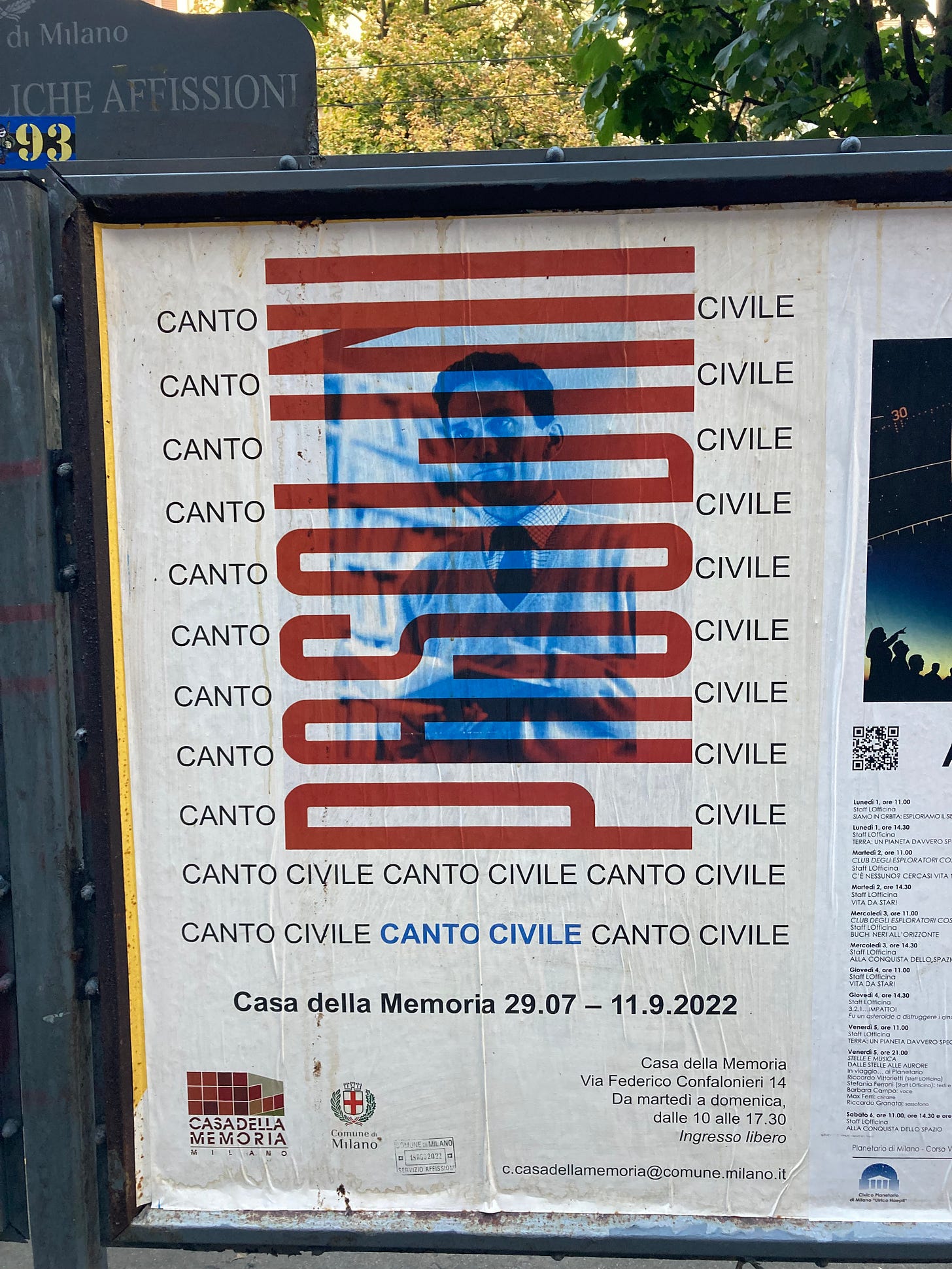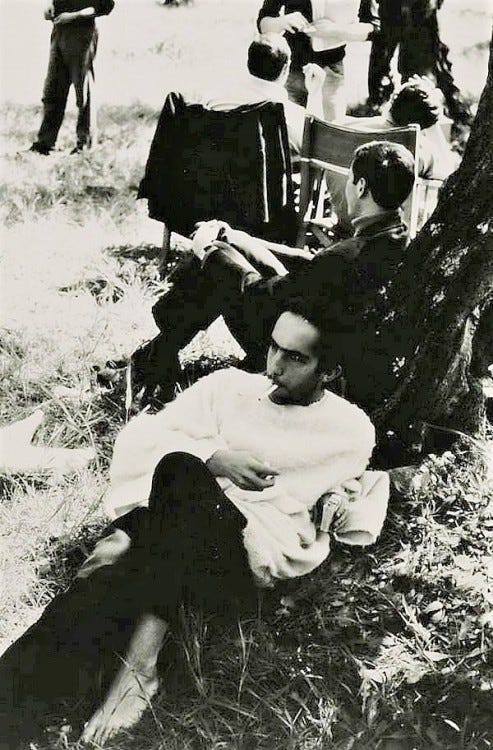In America in the 70’s there was a lot of insipid pandering going on, with bad homilies and Broadway-style music, which came off as really affected. At Latin Mass, there’s a sense that what’s going on inside the church is different from what’s going on outside. You get a sense that something important is going on that’s set apart and dedicated to God. -Mecha
I blame American Catholicism for its evolution, for allowing itself to be subsumed within the style of Protestantism. It's been homogenized and turned into ‘The Donna Reed Show’! If you go into any suburban Catholic church…the priest acts towards the parishioners as though we're all friends…It's part of the therapeutic culture of America, which again…the kind of debased therapy that goes on today is just making you feel better about yourself. ‘I'm O.K., You're O.K.’...[Going to Mass felt] like a Chamber of Commerce/guild hall…totally sanitized. -Camille Paglia
Earlier this year, I presented Pier Paolo Pasolini’s The Gospel According to Matthew at a parish in the West Village. You can listen to the recording below:
Also available on Spotify and Apple. You can also read my case for watching it on Good Friday instead of Mel Gibson’s The Passion of the Christ in The American Spectator.
Unfortunately, Amazon Prime (barf) only had the film available with English dubbing (and in color!). Watching it with the voices of American actors rather than the voices of the original Italian actors (with English subtitles) totally changed the effect of the film, and brought to light several of my critiques of the American WASP sensibility which I am wont to critique on this blog.
The American actors were clearly “trying too hard.” There was something artificial and forced about their vocal inflection, whereas the Italian actors were much more natural and subtle. It was as if the Italians trusted the audience to discern the meaning of the story themselves without needing to have it “spelled out” for them, without this anxiety that they needed to add something extra to it.
This fear of human freedom, this overly performative preachy tone is characteristic of the American Protestant style of Christianity (though of course, we wouldn’t want to accuse all Protestant denominations of having propagated this particular sensibility). Above all, it is the manifestation of a lack of faith in the person of Jesus, that his bare humanity, his presence, is inadequate…that he is incapable for fascinating and captivating our freedom without moral guilt trips or saccharine sentimentality, and instead needs us to convince people of his capacity to save.
I expressed in my review that Gibson’s The Passion falls into this trap:
I find that The Gospel According the Matthew manages to convey Pope Benedict XVI’s assertion that “being Christian is not the result of an ethical choice or a lofty idea, but the encounter with an event, a person, which gives life a new horizon and a decisive direction” in a way that the Passion fails to do. The gore and violence of Gibson’s rendering — though on one hand pointing to the love of a God who is willing to take on our sins and endure such horrid suffering — quickly slips into a “moralistic” trap. It risks placing too much emphasis on the sinner rather than on the Redeemer, whose merciful gaze is much more powerful and transformative than the sinner’s remorse for his mistakes and voluntaristic efforts to change. While conversion indeed requires the sinner’s repentance and willingness to collaborate with God’s grace, the real change is accomplished by God himself.
Though perhaps not Gibson’s intention, his grotesque depiction of the suffering that human sin has inflicted on Christ can come off as decadent and self-indulgent. After watching the film, I do indeed feel a sense of remorse for my sins and gratitude for God’s willingness to suffer for me, but rarely do I feel substantially changed by watching it. It fails to incite fascination with Christ and a desire to “leave everything and follow him” the way Pasolini’s film does.
Again, I acknowledge the masterpiece of The Passion for what it is. And I believe it is a deeply nourishing film for people of a certain level of spiritual maturity. The focus on Christ’s redemptive suffering and divine justice has great value…yet there is something presumptuous about expecting spiritually immature audiences to understand and appreciate it. Such a focus is largely inaccessible and further has easily repel those who haven't had an encounter with Christ (which Pasolini’s film is centered on). Placing such an emphasis on man’s moral culpability runs that risk of overemphasizing the role of his will in relation to Christ’s grace, his initiative which “primereas” us, as the pope would say (which gives off whiffs of the Pelagian heresy).
This pandering mentality which is afraid to risk the freedom of both God and man, as Paglia and Mecha note, is pervasive in American Catholic churches, and is part of the reason why I only find myself comfortable in ethnic parishes (more on that here and here).
Please consider signing up for a paid subscription to this page for more riveting content. If you’re new to Cracks in Pomo, check out the About page or read up on our Essentials. Also check out our podcast on Spotify, Apple, and YouTube and follow us on Instagram and Twitter.
Photo taken in Milan.





